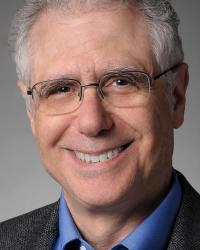
Biography
Paul Burstein is Professor in the Graduate School, and Professor of Sociology, Samuel and Althea Stroum Chair in Jewish Studies, and Adjunct Professor of Political Science, emeritus
Burstein's research has focused on politics, social movements, social stratification, research methods, and the American Jewish community. He has studied the anti-Vietnam war movement; the movement for equal employment opportunity; the impact of public opinion, political organizations, and advocacy activities on public policy; the factors affecting the economic success of racial, ethnic, and religious groups; and research methods for the study of politics.
His recent book, American Public Opinion, Advocacy, and Policy in Congress: What the Public Wants and What It Gets (Cambridge University Press) analyzes congressional action on 60 randomly selected policy proposals, including proposals leading to the Americans with Disabilities Act, the savings and loan bailout of 1990, changes in taxes on capital gains, environmental regulations, and patents for scientific work done in outer space. He discovers that public opinion has little impact on Congress, not because special interests are so powerful, but because on most issues the public has no opinions. And public political activity intended to influence congressional action on specific policies also has little impact, mainly because on most issues there is too little public political activity to matter. These findings raise fundamental questions about the nature of democracy.
Burstein’s current research focuses on how to improve our understanding of the forces affecting public policy—how much do public opinion, lobbying, protest and other advocacy activities matter, and how may we best interpret their impact?
Burstein has served as a member of the Council of the American Sociological Association, the ASA's elected Committee on Publications, and the Sociology Advisory Panel of the National Science Foundation, and has been on the editorial boards of more than a dozen journals in sociology, political science, law and society, and Jewish studies. His B.A. is from the University of Chicago and his Ph.D. from Harvard.
Research
Selected Research
- Burstein, Paul. 2020. “Why Do Lobbying, Protest, and Other Forms of Advocacy Often Fail to Affect Policy? Some Possible Explanations.” APSA Preprints. doi: 10.33774/apsa-2020-k78wc
- “The Determinants of Public Policy: What Matters and How Much.” Policy Studies Journal (2020) 48 (1):207-30.
- “Testing Theories about Advocacy and Public Policy.” Perspectives on Politics (2020) First View doi:10.1017/S1537592719004663
- “The Influence of Public Opinion and Advocacy on Public Policy: Controversies and Conclusions,” Pp. 738-760 in The New Handbook of Political Sociology, edited by Thomas Janoski, Cedric de Leon, Joya Misra, and Isaac William Martin. New York: Cambridge University Press, 2020.
- "The Influence of Organizations on Policy: Theory, Findings, Conclusions." Interest Groups & Advocacy (2019) 8(1):1-22
- “From GDP Per Capita to Social Protest and Lobbying: the Many Determinants of Public Policy” (submitted for publication)